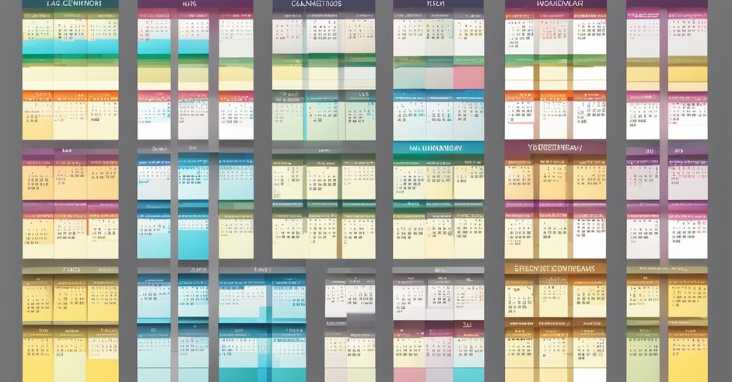How many weekends in a year? There are 52 weekends in a year, each with 2 days, totaling 104 weekend days annually.
The number of weekends in a year is a topic that may seem trivial, but it can have a significant impact on planning and scheduling. Whether you are planning a vacation, an event, or simply trying to make the most of your free time, knowing how many weekends you have available can be helpful. In this article, we will explore the topic of weekends in a year and provide some insights and tips for planning and scheduling.

Understanding the Calendar Year is the first step in determining the number of weekends in a year. A calendar year is a period of 365 days, except for leap years, which have 366 days. The year is divided into 12 months, each with a varying number of days. The number of weekends in a year can vary depending on the number of days in each month and the day of the week on which the year begins. In the following sections, we will delve deeper into weekends in a standard year, weekends by month, and additional considerations that can affect the number of weekends in a year.
Key Takeaways
- A calendar year is a period of 365 days, except for leap years, which have 366 days.
- The number of weekends in a year can vary depending on the number of days in each month and the day of the week on which the year begins.
- Knowing the number of weekends in a year can be helpful for planning and scheduling, and there are several tools and resources available to help with this task.
Understanding the Calendar Year
The Gregorian Calendar
The Gregorian calendar is the most widely used calendar system in the world. It is a solar calendar that was introduced by Pope Gregory XIII in 1582 as a reform to the Julian calendar. The Gregorian calendar has 365 days in a year, with an additional day added every four years to account for the extra time it takes for the Earth to orbit the sun. This additional day is known as a leap day and is added to the month of February.
Months and Days in a Year
The Gregorian calendar has 12 months in a year, with each month having either 30 or 31 days, except for February which has 28 days in a common year and 29 days in a leap year. The months are named January, February, March, April, May, June, July, August, September, October, November, and December. The total number of days in a common year is 365, while in a leap year it is 366.
Special Considerations for Leap Years
Leap years occur every four years, with the exception of years that are divisible by 100 but not by 400. In those years, the extra day is not added, resulting in a common year. For example, the year 1900 was not a leap year, but the year 2000 was a leap year. This rule ensures that the calendar year stays in sync with the solar year.
It is important to note that the addition of a leap day affects the number of weekends in a year. In a common year, there are 52 weekends, with 104 weekend days. In a leap year, there are 52 weekends plus one extra day, resulting in 105 weekend days.
To learn more about the Gregorian calendar and its history, visit timeanddate.com.
Weekends in a Standard Year
A standard year consists of 52 weeks, which is equivalent to 364 days. As there are seven days in a week, there are 104 weekend days in a standard year. These weekend days are comprised of Saturdays and Sundays, which are considered non-working days in most countries.
Calculating Full Weekends
To calculate the number of full weekends in a standard year, one would simply divide the total number of weekend days (104) by 2, as each weekend consists of two days. Therefore, there are 52 full weekends in a standard year.
Impact of Leap Years on Weekends
A leap year occurs every four years and consists of an additional day, February 29th. This extra day brings the total number of days in a leap year to 365.25, which is equivalent to 52.14 weeks. As a result, there are 105 weekend days in a leap year.
To calculate the number of full weekends in a leap year, one would divide the total number of weekend days (105) by 2, which gives 52.5. However, as there cannot be half a weekend, the number of full weekends in a leap year is either 52 or 53, depending on how the extra day falls.
It is important to note that the number of weekends in a year can vary depending on the country and its weekend policies. For example, some countries have a five-day workweek with Saturday and Sunday being the weekend days, while others have a six-day workweek with only Friday being a non-working day.
For more information on weekends and their impact on the workweek, visit this resource.
Weekends by Month

The number of weekends in a year varies depending on the month. In this section, we will explore the number of weekends in each month and highlight any variations.
Variation Across Months
Some months have more weekends than others. For instance, January and March typically have four weekends, while May, July, and October have five weekends. According to timeanddate.com, a website that provides information on dates and times, the number of weekends in a year can range from 104 to 105, depending on the year.
Months with Five Weekends
As mentioned earlier, May, July, and October are the months with five weekends. This can be beneficial for those looking to take a weekend trip or plan a short vacation. However, it is important to note that the exact dates of these weekends can vary from year to year. Therefore, it is always a good idea to check the calendar before making any plans.
In summary, the number of weekends in a year varies from month to month, with some months having more weekends than others. May, July, and October are the months with five weekends, providing an opportunity for a weekend getaway.
Planning with Weekends
Weekends are a valuable time for everyone to unwind and spend quality time with family and friends. However, with only 52 weekends in a year, it is important to plan ahead to make the most of them. In this section, we will cover some tips on how to plan your weekends effectively.
Public Holidays and Long Weekends
Public holidays, such as Memorial Day, Independence Day, Labor Day, Veterans Day, Thanksgiving, and Christmas Day, are great opportunities for long weekends. By strategically planning around these holidays, you can maximize your time off and plan for vacations or trips.
According to timeanddate.com, there are 10 federal holidays in the United States. When a holiday falls on a weekend, it is usually observed on the nearest weekday. For example, if Independence Day (July 4th) falls on a Saturday, it will be observed on Friday, July 3rd.
Scheduling for Work and Leisure
When planning your weekends, it is important to consider both work and leisure activities. For those who work Monday to Friday, weekends are the only time to complete tasks and errands. It is important to balance work and leisure time to ensure productivity and relaxation.
To achieve a good work-life balance, it is recommended to schedule tasks and activities in advance. This can be done by creating a weekend calendar, prioritizing tasks, and setting realistic goals. By planning ahead, you can ensure that you have enough time for both work and leisure activities.
In conclusion, weekends are a valuable time for everyone to relax and spend time with loved ones. By planning ahead and taking advantage of public holidays and long weekends, you can maximize your time off and achieve a good work-life balance.
Additional Considerations

Weekends in Different Calendar Systems
Calculating weekends in a year can be more complex than it seems, especially when considering different calendar systems. For example, the Islamic calendar is a lunar calendar and has 354 or 355 days in a year, which means that the number of weekends in a year varies from year to year. Similarly, some other calendars, such as the Chinese calendar, also have a different number of days in a year compared to the Gregorian calendar, which is used in most parts of the world.
Calculating Weekends for Any Year
To calculate the number of weekends in a year, it’s important to consider the number of days in a year, which varies depending on whether it’s a leap year or not. In a non-leap year, there are 365 days, and in a leap year, there are 366 days. Additionally, it’s important to consider the number of weekends in a month, which varies depending on the number of days in the month and the day of the week on which the month starts.
In the United States, there are 104 weekend days in a year, assuming a standard 5-day workweek. However, this number can vary depending on the number of federal holidays and the number of working days in a year. In India, there are 104 weekend days in a year as well, but the number of working days can vary depending on the region and the type of industry.
It’s also important to consider special dates and events that can affect the number of weekends in a year. For example, in 2022 and 2023, Christmas and New Year’s Day fall on a Sunday, which means that there are fewer weekend days in those years. However, in 2024, both holidays fall on a Monday, which means that there are more weekend days in that year.
To calculate the number of weekends in any year, one can use a simple formula:
Number of weekends = Number of Saturdays + Number of Sundays
The number of Saturdays can be calculated by finding the number of weekends in the first month of the year and multiplying it by 12. The number of Sundays can be calculated by finding the number of weekends in the second month of the year and multiplying it by 12.
External Resource
For more information on calculating weekends in a year, check out this article on TimeandDate.com, a trusted source for information on calendars, holidays, and time zones.
Frequently Asked Questions

How do you calculate the number of weekends in a given year?
To calculate the number of weekends in a given year, you simply need to count the number of Saturdays and Sundays in that year. There are 52 weeks in a year, which means there are 104 weekend days. However, this number can vary depending on whether it is a leap year or not.
What is the total count of Saturdays and Sundays in a leap year?
In a leap year, there are 366 days, which means there are 52 weeks and 2 extra days. This means there are 105 weekend days in a leap year.
How many days do weekends account for annually?
Weekends account for 104 days annually in a non-leap year and 105 days in a leap year.
Is the number of weekends the same every year?
No, the number of weekends is not the same every year. The number of weekends in a year depends on whether it is a leap year or not.
How can one determine the number of Fridays, Saturdays, and Sundays in a non-leap year?
To determine the number of Fridays, Saturdays, and Sundays in a non-leap year, you can count the number of Fridays and Sundays and multiply by 52, then add the number of Saturdays. This will give you the total number of weekend days in a non-leap year.
What is the difference in weekend days between a leap year and a non-leap year?
The difference in weekend days between a leap year and a non-leap year is one day. In a leap year, there are 105 weekend days, while in a non-leap year, there are 104 weekend days.
For more information on how to calculate the number of weekends in a year, you can visit timeanddate.com which provides a comprehensive guide on the topic.
Compare hundreds of Scheduling Software in our Software Marketplace













